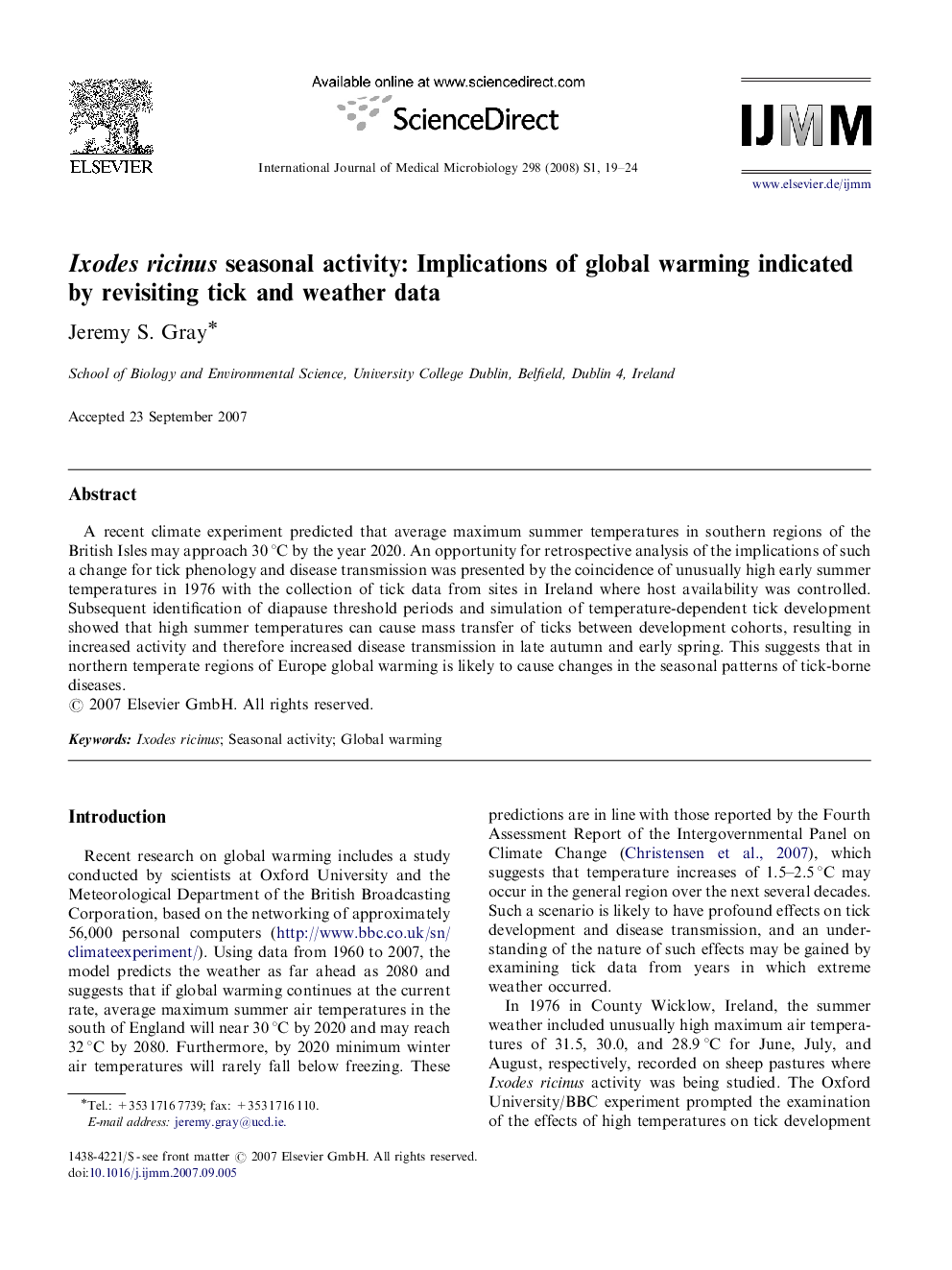| Article ID | Journal | Published Year | Pages | File Type |
|---|---|---|---|---|
| 2054946 | International Journal of Medical Microbiology | 2008 | 6 Pages |
A recent climate experiment predicted that average maximum summer temperatures in southern regions of the British Isles may approach 30 °C by the year 2020. An opportunity for retrospective analysis of the implications of such a change for tick phenology and disease transmission was presented by the coincidence of unusually high early summer temperatures in 1976 with the collection of tick data from sites in Ireland where host availability was controlled. Subsequent identification of diapause threshold periods and simulation of temperature-dependent tick development showed that high summer temperatures can cause mass transfer of ticks between development cohorts, resulting in increased activity and therefore increased disease transmission in late autumn and early spring. This suggests that in northern temperate regions of Europe global warming is likely to cause changes in the seasonal patterns of tick-borne diseases.
